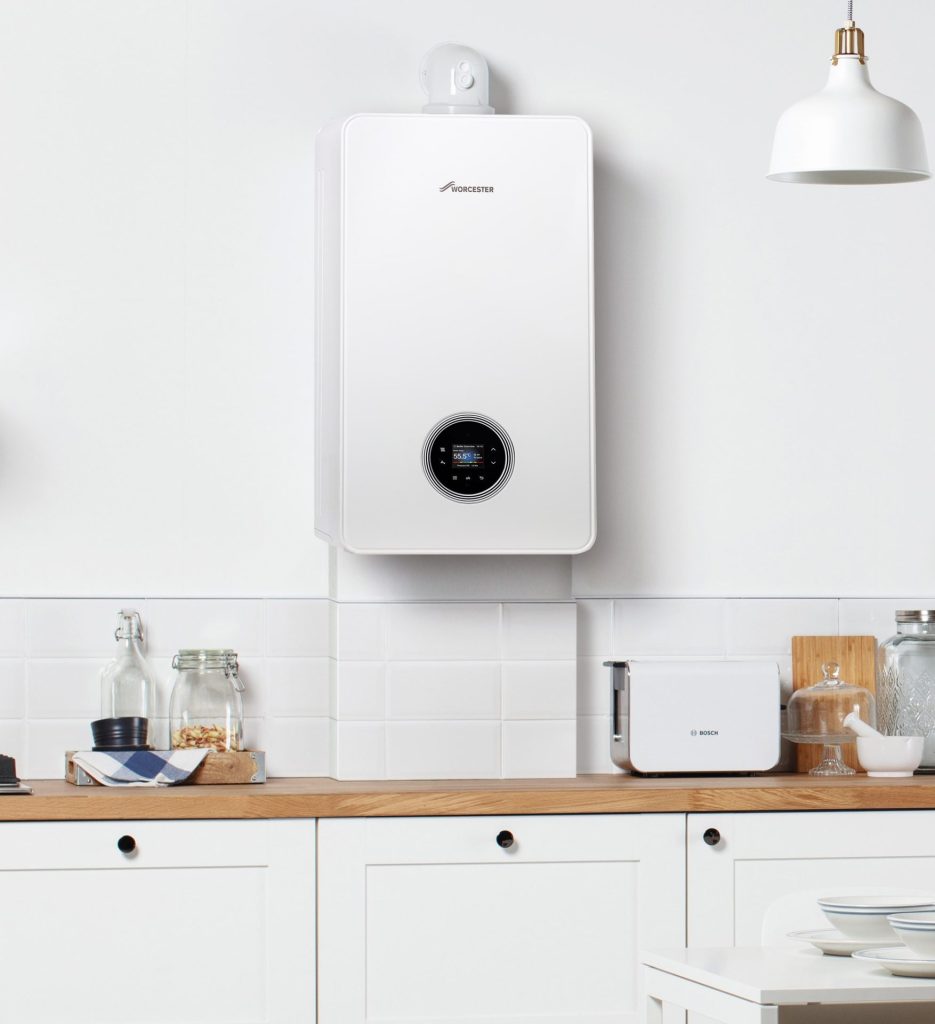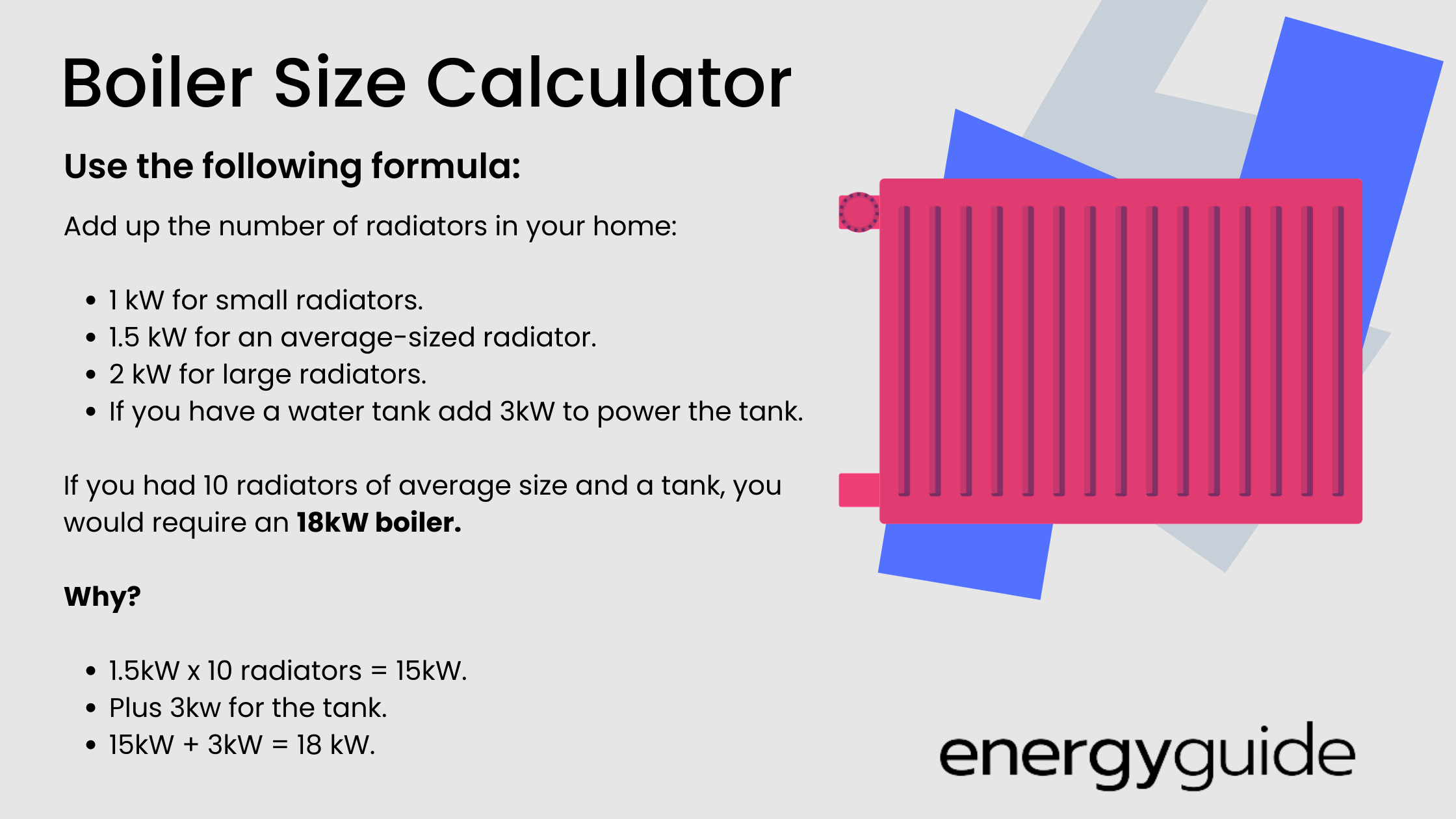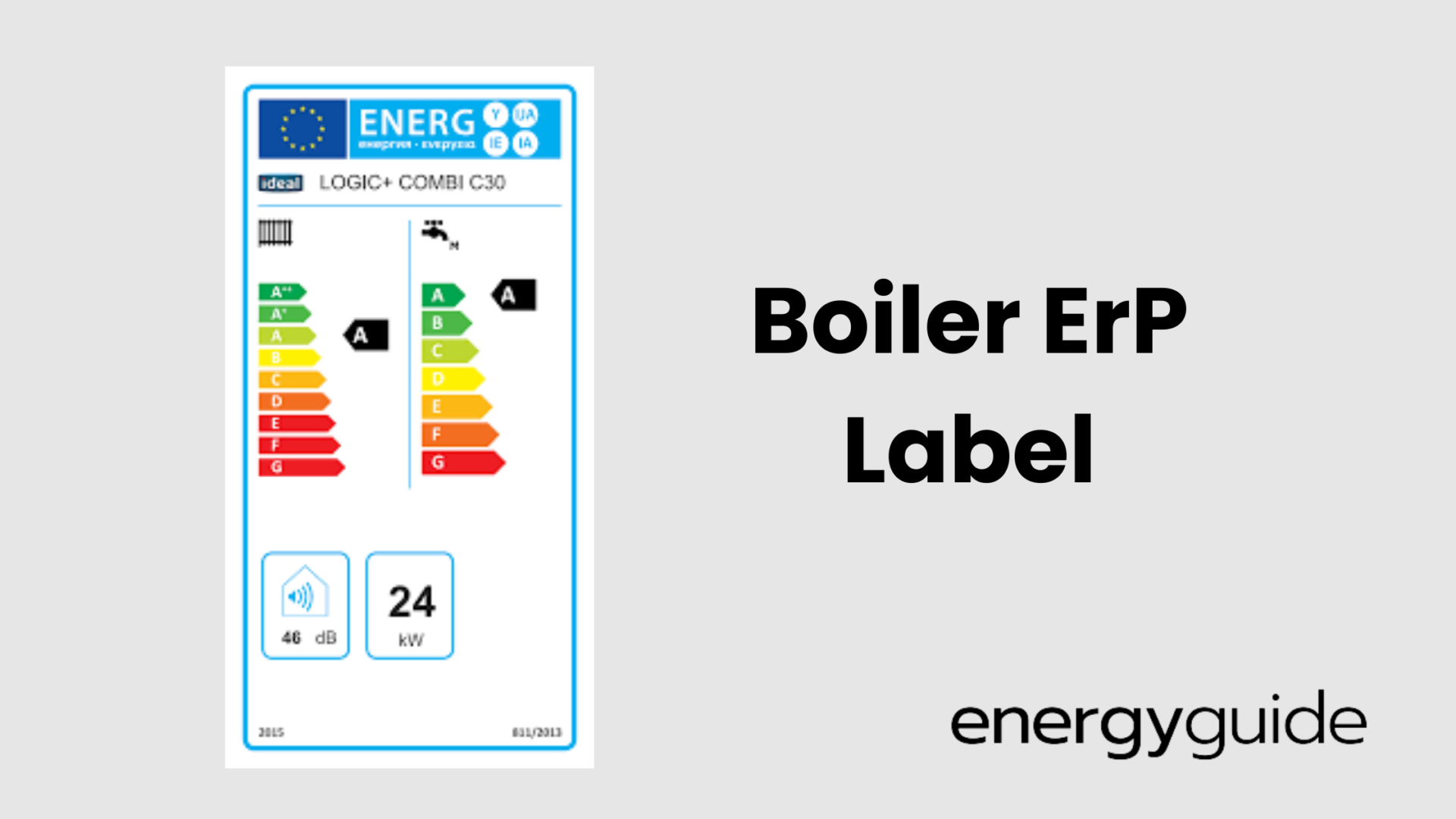What size boiler do you need? Which boiler will provide your home with adequate hot water and heating without wasting energy and driving up your heating bills? Find out in this boiler size calculator guide.
Getting the right size of boiler is crucial for keeping your home warm and happy without compromising efficiency, comfort, or operating costs.
Studies show that many UK homes have oversized boilers, which leads to reduced efficiency, underperformance, and shorter lifespans.
There’s no one-size-fits-all boiler, so you must pick one that meets your needs. Good boiler sizing leads to lower installation costs, higher boiler efficiencies, lower running costs, and reduced environmental emissions.
The right size boiler for your home largely depends on your property’s hot water demands but also includes other factors such as the size of your property, the number of bathrooms, and insulation.
But what size of boiler do you need?
This boiler size calculator guide explores everything you need to know about boiler sizing to help you determine the right power output for your property (measured in kilowatts or kW for short).

Boiler Size Calculator Quick Takeaways:
- The boiler size or power output is measured in kilowatts (kW).
- Factors to consider when determining boiler size include the size of the property, the number of radiators, and the number of bedrooms and bathrooms.
- Combi boilers are generally suitable for small and average-sized homes, while system and regular boilers (boilers with a tank) are more suitable for larger properties.
- A rough guide is to allow 1.5 kW for every radiator and 3 kW for every bathroom.
- Considering insulation levels, the property’s age and the local climate is also essential.
- A professional installer can assess your property’s needs and recommend the best size and type of boiler for your home.
Check out our video on how to vet boiler brands/models in the UK:
What Size Boiler do I need for my Property?
Boiler sizes quoted on various models are not actually dimensions or capacity. The sizing measured in kilowatts is actually referring to the power output that a boiler provides.
Typically, the more heat and hot water needed for the property and household requirements, the higher the kilowatt output or boiler size will need to be.
Although it may be tempting to choose a boiler size with the highest power output, this may not make sense from a financial perspective, as it will likely cost more to run and waste energy you don’t need.
What Size Boiler Do I Need Calculator:

You can use our free boiler size calculator below to get a rough estimate of what size boiler your house requires:
Why is Correct Boiler Sizing Important?
Performance
A properly sized boiler will provide better performance and ensure a comfortable temperature throughout the home.
If the boiler is too small, it will struggle to heat the home adequately, leading to cold spots and discomfort.
If the boiler is too large, it will heat the home too quickly, leading to short cycling and reduced performance.
A correctly sized boiler will maintain a consistent temperature, providing better performance and comfort.
Efficiency
Proper boiler sizing is critical to ensuring energy efficiency.
If the boiler is too small, it must work harder to meet the heating demand, leading to higher energy consumption and bills.
If it’s too large, it will cycle on and off more frequently, wasting energy and reducing efficiency.
A correctly sized boiler will run more efficiently, saving you money on your energy bills and reducing your carbon footprint.
Safety
Boiler sizing is also critical for safety reasons.
If the boiler is too small, it can overheat, leading to potential safety hazards such as carbon monoxide leaks or boiler breakdowns.
If the boiler is too large, it can also lead to pressure problems and leaks, posing a safety hazard to your household’s occupants.
A correctly sized boiler will operate safely and reliably, ensuring the safety of your home.
Longterm Costs
The size of the boiler can also have a significant impact on long-term costs.
If the boiler is too small, it must work harder, leading to higher maintenance costs and a shorter lifespan.
If the boiler is too large, it will cost more to purchase and install and will waste energy, leading to higher energy bills.
A correctly sized boiler will provide better efficiency, reducing long-term costs and extending the boiler’s lifespan.
Eco-Friendliness
Proper boiler sizing can also have a positive impact on the environment.
If the boiler is too large, it will consume more fuel, leading to higher carbon emissions and a greater environmental impact.
A correctly sized boiler will consume less fuel, reduce carbon emissions, and contribute to a greener, more sustainable future.
Factors that Determine the Boiler Size
There are various elements that will impact the most appropriate boiler size for the property. These are as follows:
The Number of Bedrooms
The number of bedrooms can determine the size of the property and the size of the boiler needed.
More bedrooms indicate a larger property, which would, in turn, require a higher output boiler.
Typically, the number of bedrooms in a home can indicate the number of occupants and, by extension, the heat demand.
As the number of bedrooms increases, so does the likelihood of needing a boiler with a greater capacity to ensure a comfortable living space for all residents.
Check out our quick help guides for choosing a boiler based on your property size:
- Best boiler for a three-bedroom house.
- Best boiler for a two-bedroom house.
- Best boiler for a large (4 bedroom plus) house.
The Number of Bathrooms
Homes with multiple bathrooms may require a boiler with a higher kilowatt capacity, especially if your household uses multiple showers and baths simultaneously.
You’ll need to choose a boiler that can supply enough hot water across various outlets without struggling.
For example, if your property has multiple bathrooms, a combi boiler can struggle to supply the higher flow rate needed, and therefore a hot water cylinder system is often required.
Are you wondering which boiler manufacturers performed best? Check out our guide to the best boiler brands for the full rundown. If you are trying to determine the best boiler installation company, check out our Boiler Central, Warmzilla, and Boxt reviews.
The Number of Radiators
The number of radiators in your house directly affects the size of the boiler you need.
More radiators equate to a higher heat requirement, as each unit requires a certain amount of power to reach the desired temperature.
Generally, a larger number of radiators will require a boiler with a higher kilowatt output since each radiator adds around 1-2 kW to your boiler size.
The number of radiators installed in a property can determine the power needed to supply the system.
The table below provides a rough guide to the appropriate boiler size depending on the above factors:
| No. of Bathrooms | No. of Radiators | No. of Bedrooms | Recommended Boiler Size |
|---|---|---|---|
| 1 | 0-10 | 1-2 | 9-11kW |
| 2-3 | 10+ | 3-4 | 11-15kW |
| 3+ | 20+ | 4+ | 15-30kW |
Insulation
The level of insulation in your home affects heat retention and, consequently, the size of the boiler required. Well-insulated homes minimize heat loss, enabling efficient heating with a smaller boiler.
Typically, British properties are not well insulated. Therefore, heat escaping through the property walls or roof will reduce energy efficiency.
In addition, gaps in windows, doors, or letterboxes can create draughts through which heat escapes.
Conversely, poorly insulated homes necessitate larger boilers to compensate for the increased heat loss.
The Boiler Size Rules to Remember:
To determine the exact boiler size you will need i.e. the power output (kW), use the following formula:
Add up the number of radiators in your home using the following scores:
- 1 kW for small radiators.
- 1.5 kW for an average-sized radiator.
- 2 kW for large radiators.
The total will provide the power output required for your home.
However, if you have a boiler with a hot water storage cylinder/tank, you must add an additional 3kW to power the tank.
Therefore, if you had 10 radiators of average size and a tank, you would require an 18kW boiler.
Why?
1.5kW x 10 radiators = 15kW.
Plus, 3kw for the tank.
15kW + 3kW = 18 kW.
Boiler Size Calculator
Considering all of the above information, this quick, free, and easy-to-use calculator can estimate the boiler size needed for a property and advise an indicative cost.
The calculator estimates the costs of installing a new boiler by making suggestions based on mid-range boilers and average installation costs.
Final installed boiler prices will vary depending on the selected brand of boiler, the supplier, and installation costs, which can also vary depending on the property’s location.
Online boiler suppliers can provide a cost-effective method of sourcing a new boiler and arranging an installation.
How old is your boiler? Should you consider repairing the boiler or looking at the latest prices? It’s no secret that boiler efficiency deteriorates over time.

What Type of boiler Do You Need?
When looking for a new boiler, one of the first things to do is determine which type would be most suitable for your home.
Property requirements and household usage usually determine which type of boiler you should install.
When installing a new boiler, there are three common types: combination (combi boilers), system, and regular (heat only) boilers.
Did you know that your boiler’s efficiency can affect the amount of energy it uses and, ultimately, your heating bill costs?
Check out our guide to the best condensing boilers to learn more.
You may also find our review of the best eco-friendly boilers of interest.
Combination Boilers (Combi Boilers)
Also known as combi-boilers, combination boilers are the most common type of boiler used in UK homes. They provide heating and hot water directly from the mains without needing a water tank.
Combi boilers save physical space since they don’t require extra tanks. They can also save energy because instead of heating the whole tank, they only heat what is required at the point of use.
However, combi boilers have limitations. They’re typically suited to small to medium-sized properties only, depending on the number of bathrooms and household usage requirements.
Another factor when considering a combi-boiler is the water pressure requirements that enable the system to work effectively.
Are you wondering how you can fund a new boiler installation? Check out our complete guide to boilers on finance and potential boiler grants you may be eligible for.
Did you know that not all boiler models are wall-hung? Check out our complete guide on floor-standing boilers here.
Wondering how much a new boiler costs? Check out our guide on options available if you need a new boiler but can’t afford it, as well as boilers on finance and government boiler grants here.
Regular (Heat-Only Boilers)
As the name suggests, this type of boiler provides heat only, rather than heat and hot water like a combi-boiler. Heat-only boilers supply the radiators directly via a hot water cylinder.
Hot water is stored in a separate hot water storage tank and is fed to the system via a cistern tank in the attic.
Regular boilers are the oldest type of residential boilers and are usually recommended for properties that already use them and those with old pipework.
Do you have a common boiler problem? Check out our quick fix guide for boiler lockout, ignition faults, PCB faults, faulty diverter valves, and boiler timer issues.
System Boilers
A system boiler is a closed system requiring a boiler and a cylinder system. It is essentially a modern version of the regular boiler since it has more internalised parts, such as the pump.
This means they are quicker to install than regular boilers and take up less space (as they don’t require a cistern tank in the loft).
However, most system boilers require more space than compact options like combi-boilers.
Since they also take their water directly from the mains water supply, they aren’t always suitable for areas with low water pressure.
What size boiler is right for your home? If you are considering a combi boiler, it is largely determined by the number of radiators in your home. If you are wondering about the best type of boiler for your home, check out our complete guide to new boiler installation.
How much may a new boiler cost? Are you considering converting from a conventional to a combi boiler? Use our boiler installation cost calculator to get an estimation.
Combi, Regular, or System Boiler?
So, which type of boiler is the most suitable for your home? These are the general rules:
- Choose a combi boiler if you have fewer than two bathrooms and/or a small to average-sized home.
- Choose a system boiler if you have 2+ bathrooms and/or a medium to large home.
- Choose a regular boiler if you already have one installed on your property.
Check out our boiler brand price guides and comparisons:
- British Gas new boiler costs.
- How much is it to fit a new boiler?
- How much does a Vaillant boiler cost?
- Baxi boiler costs.
Boiler Size Calculator Summary
Boiler sizing and marketing jargon can appear overwhelming when first considering installing a new boiler. However, throughout this article, we have aimed to explain the considerations behind boiler sizing.
As discussed, various factors must be considered when selecting the most suitable boiler type and size. Overestimating the boiler size needed does not have benefits.
If you prefer more tailored advice, it is recommended that you book an appointment with a heating engineer who can provide expert advice on the best boiler options for the property.
Further reading:
- Smell of gas from boiler.
- Boiler leaking water.
- Boiler lockout.
- Boiler PCB faults.
- How to fix a faulty diverter valve.
- Compare BOXT boiler prices.
Sources and References
- https://www.ncbi.nlm.nih.gov/pmc/articles/PMC7585999/